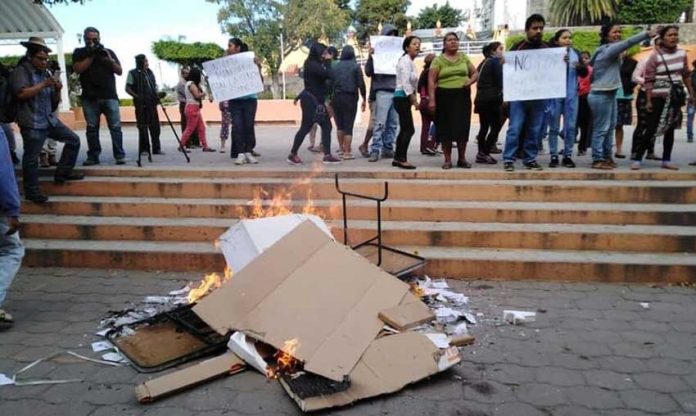UNESCO will study the effects on water of the controversial thermal power plant project in Morelos that is being put to a public vote this weekend.
President López Obrador signed an agreement with the United Nations Educational, Scientific and Cultural Organization to have it analyze the quality of water near the Huexca plant. Should the plant’s operation be approved by the public consultation UNESCO will determine whether its water treatment processes are adequate.
Fréderic Vacheron, an official in the UNESCO Mexico office, said experts will carry out a technical and scientific analysis of the plant’s potential effects on water quantity and quality.
If the water supply is found to be adversely affected, the government is expected to cancel operations at the power plant.
However, under the criteria set by the López Obrador administration, the plant must first be approved by citizens who are voting today at polling stations across Morelos and in municipalities of Puebla and Tlaxcala through which a gas pipeline connected to the plant runs.
Citizens face a single question: Do you agree with the Federal Electricity Commission’s Huexca thermal power plant starting operations?
The president reiterated yesterday that the people’s verdict will be respected and said he was unconcerned about protests against the plant.
“. . . Debate is good, very good. If there’s going to be a demonstration against [the plant], the demonstration is welcome. If there’s going to be a rally, let the rally go ahead . . . We’re going to guarantee the right to dissent,” López Obrador said.
Announcing the consultation earlier this month, López Obrador sought to entice citizens to vote in favor of the project by pledging that cheaper electricity prices will be on offer.
The Huexca power plant, made up of two separate power stations, is part of the US $1.3-billion Integral Morelos Project, which also includes a 160-kilometer pipeline to supply natural gas to the plant from Tlaxcala and an aqueduct.
Local communities have been fighting against the project for years, arguing that the effects on water supply and human health will outweigh any benefits the plant will generate.
An indigenous activist opposed to the plant was killed this week the day after he attended a public forum about the project and challenged statements made by government representatives.
Morelos Attorney General Uriel Carmona said there was no evidence that Samir Flores Soberanes’ death was related to the power plant, adding there were indications instead that organized crime was involved.
But citizens’ organizations in the state reject the claim.
Around 900 people marched through the streets of Mexico City yesterday to demand justice for the activist’s murder.
Today, meanwhile, protesters have disrupted voting in at least two Morelos municipalities, vandalizing polling stations and burning ballots. Three university students were arrested in Cuernavaca for throwing paint at a polling station.
Source: Milenio (sp)
